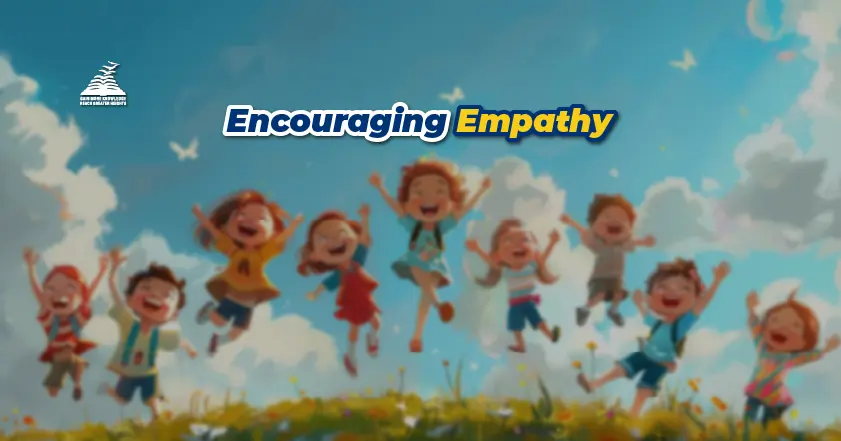In a world that’s increasingly fast-paced and competitive, raising children who are kind, empathetic, and respectful is more important than ever. Beyond academics, what truly defines a person’s character are their values how they treat others, how they handle differences, and how they make people feel. For schools and parents alike, teaching kindness, empathy, and good behaviour is not just a part of moral education it is the foundation for building a compassionate, emotionally intelligent generation.
1. Why Kindness and Courtesy Matter
Kindness and courtesy go hand in hand with respect, understanding, and empathy. When children learn to say “please,” “thank you,” or lend a helping hand, they not only brighten someone else’s day but also experience a sense of belonging and purpose. The best schools in Bangalore recognize that academic success alone does not prepare students for life; emotional and social intelligence matter just as much. Teaching kindness in children helps them build stronger relationships and creates safer, more inclusive classrooms where everyone feels valued.
2. Learning Through Observation
Children are natural imitators they absorb what they see and hear. The way adults behave often becomes a silent lesson. Teachers and parents play a vital role in modelling the qualities they wish to instil. A teacher greeting students warmly each morning, or a parent showing patience during a stressful moment, sends a powerful message. The best ICSE schools in Bangalore and best CBSE schools in Bangalore emphasize that children learn good behaviour not through lectures, but by watching everyday acts of respect and compassion.
3. Encouraging Everyday Acts of Kindness
Small acts can create lasting impressions. When children share their lunch, help a classmate, or comfort a friend who’s upset, they begin to understand that kindness is an action, not just a word. Schools in Bangalore integrate kindness-based activities into their daily routines like “Kindness Corners,” “Thank You Trees,” or weekly reflection sessions where students share one kind act they performed. Over time, these gestures nurture empathy and make compassion a natural part of a child’s identity.
4. The Role of Schools in Character Education
The best schools in Bangalore understand that teaching moral values must be intentional. Through moral science lessons, assemblies, and classroom discussions, children are introduced to real-world scenarios that test patience, honesty, and empathy. The moral science teaching approach has evolved it is no longer limited to storytelling but involves experiential learning, role-play, and group reflection. By engaging in these activities, students begin to internalize values like fairness, cooperation, and respect.
5. Turning Mistakes into Learning Moments
No child is perfect, and mistakes are part of growing up. The goal of character education is not to punish errors but to guide children toward self-awareness. When a child forgets to share or behaves rudely, adults have an opportunity to turn it into a lesson in reflection and kindness. The schools in Bangalore that prioritize emotional well-being teach children to apologize sincerely, forgive others, and understand how their actions affect people around them. Learning that kindness includes forgiveness helps children grow into balanced and understanding individuals.
6. Using Stories and Role-Play to Teach Values
Stories have always been one of the most powerful tools for teaching empathy in children. When students listen to tales about kindness, friendship, and courage, they relate emotionally to the characters and situations. Teachers in the best play schools in Bangalore use storytelling and role-play to bring moral lessons to life. For example, dramatizing a story about helping someone in need allows children to feel the joy of compassion firsthand. These creative experiences make moral values relatable and memorable.
7. Creating a Respectful Home and School Environment
Respect and kindness flourish in environments where they are practiced consistently. Whether at home or in school, mutual respect between adults and children encourages open communication and confidence. When teachers address students politely, children mirror that politeness with peers. Similarly, when parents listen to their child’s opinions and emotions, they foster trust and empathy. The best schools in Bangalore create classroom cultures where every student feels heard, safe, and respected an essential foundation for character development.
8. Recognizing and Rewarding Kind Behaviour
Children thrive on encouragement. Recognizing and celebrating acts of kindness motivates them to continue doing good. Schools that highlight students’ kind gestures during assemblies or award “Kindness Certificates” send a clear message that empathy and respect are as valuable as academic excellence. The good behaviour in children becomes more consistent when they realize their thoughtful actions have meaning and impact. This positive reinforcement helps kindness become a habit, not just an occasional act.
9. Encouraging Empathy Toward Others
To be truly kind, children must learn to understand how others feel. Empathy is the ability to put oneself in another’s place and it can be cultivated through mindful conversations and activities. Teachers and parents can ask questions like, “How would you feel if this happened to you?” or “What can we do to make someone feel better?” The best CBSE schools in Bangalore often incorporate community service programs and peer mentoring to give children real opportunities to practice compassion. When students engage in helping others, empathy becomes second nature.
10. Building a Kinder Generation for the Future
When we teach children the power of kindness, we are shaping more than just their personalities we are shaping the future. A child who learns to treat others with respect and care grows into an adult who values cooperation, inclusivity, and harmony. The best schools in Bangalore aim to create not just successful students, but good human beings’ individuals who contribute positively to society.
The long-term benefits of instilling kindness in children are profound. Kind and courteous students perform better in group work, build stronger friendships, and handle conflicts with maturity. As they grow, these traits translate into leadership, teamwork, and emotional intelligence qualities that the modern world values as much as academic excellence.
Presidency Group of Schools – Nurturing Character Through Kindness
The Presidency Group of Schools, among the best schools in Bangalore, believes that true education goes beyond academics it is about shaping hearts and minds. From kindergarten to senior school, children are taught the importance of kindness, respect, and empathy through every day experiences, structured programs, and moral education.
Classrooms at Presidency Group of Schools foster a spirit of inclusion, where students learn to appreciate differences and support one another. Teachers model courtesy and compassion, ensuring that values are not just taught but lived. Activities like community outreach, storytelling, and student-led kindness drives reinforce the message that small acts of goodness can make a big difference.
By blending strong academics with value-based education, the Presidency Group of Schools ensures that every student grows into a responsible, empathetic citizen. Here, learning kindness is not just a lesson it is a way of life.
Conclusion
Kindness and courtesy are the cornerstones of a compassionate and respectful society. When children are taught to care, share, and understand others’ feelings, they grow into individuals who make the world a better place one thoughtful act at a time. True education lies not just in mastering subjects but in nurturing empathy, patience, and integrity. By cultivating these values early, schools and parents together shape confident, emotionally intelligent, and socially responsible young minds.
At Presidency Group of Schools, kindness is more than a value it is a lived experience. Through moral education, meaningful interactions, and a culture of respect, students learn that greatness begins with goodness. Every act of courtesy, every moment of empathy, and every lesson in compassion helps build a generation that leads with both intellect and heart a generation ready to light the world with kindness.






